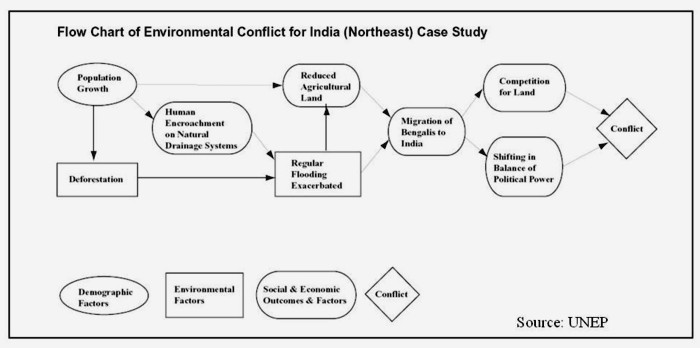/regions/physiography
Physiography
Ignoring precaution, MoEF clears a project which has been categorically rejected by majority Standing Committee of the NBWL
Posted on 26 Feb, 2012 01:31 PMGuest Post : Parineeta Dandekar and Himanshu Thakkar
Inducing vulnerabilities in a fragile landscape: The implications of hydropower development in a seismically active zone - An article in EPW
Posted on 24 Feb, 2012 08:25 PMClose to 30 hydroelectric projects are being planned on the Teesta and its tributaries. Not only is this river an essential part of Lepcha identity and life, but it also flows through a fragile zone. In this article first published in the Economic and Political Weekly (EPW), Kanchi Kohli examines the ramifications of this policy.
Construction empties Kashmir's rice bowl: How unplanned 'development' has led to a shortage of this staple crop
Posted on 24 Feb, 2012 03:16 PMVideo courtesy: VideoVolunteers
Once upon a lake: A report on the current status of the lakes of Mahadevpura constituency, Bengaluru with recommendations for restoration
Posted on 23 Feb, 2012 05:55 PMMap of the lakes in Bengaluru, source: ATREE
Challenges for achieving conservation and development - A presentation by Elinor Ostrom at the Khoshoo memorial lecture, ATREE
Posted on 22 Feb, 2012 06:52 PM
Climate variability and change in the Himalayas: Community perceptions and responses - An ICIMOD study
Posted on 22 Feb, 2012 05:30 PMThe general objectives of the assessments were:
Rural water access: Governance and contestation in a semi-arid watershed in Udaipur, Rajasthan: A paper in EPW
Posted on 21 Feb, 2012 05:19 PMStudy area
This study is carried out in micro-watershed No.19, which comprises six villages in Jhadol tehsil of Udaipur district in Rajasthan. A minor irrigation project completed in 1980 serves these six villages
Rainfall, storage levels in reservoir and groundwater use
The status of glaciers in the Hindu Kush-Himalayan region - A report by the ICIMOD
Posted on 17 Feb, 2012 03:00 PMThe HKH region is one of the most dynamic, fragile, and complex mountain systems in the world as a result of tectonic activity and the rich diversity of climates, hydrology, and ecology. The high Himalayan region is the freshwater tower of South Asia and has the highest concentration of snow and glaciers outside the polar regions giving it the name Third Pole.
Balati glacier, Pithoragarh district, Uttarakhand (Source: Uttarakhand and I)
"Water management in Mumbai: Prospects and challenges" - Videos from a round table organised by Observer Research Foundation
Posted on 16 Feb, 2012 03:51 PMThese four films include details of speeches made by the Municipal Commissioner of Brihan Mumbai Municipal Corporation (BMC), Mr Swadhin Kshatriya, who delivered a valedictory speech and Mr Sandeep Acharya, senior journalist from Loksatta, who expressed his views on the water crisis in Mumbai, as a part of a round table organised by Observer Research Foundation (ORF), on "Water management in Mumbai: Prospects and challenges", on the 10th of January 2010.
Multi-stakeholder dialogue is messy, but necessary
Posted on 16 Feb, 2012 01:32 PMA workshop on ‘Understanding and resolving water conflicts in the North East India', was organized by Forum for Policy Dialogue on Water Conflicts in India (Forum), in collaboration with Aaranyak (Guwahati), Centre for the Environment, IIT (Guwahati), Arghyam (Bangalore), SaciWATERs-CapNet Network (SCaN) and Cap-Net to discuss emerging issues related to water conflicts and their resolution in the region. This workshop was held in Guwahati on January 23-26, 2012. It aimed at presenting concepts and theory related water conflicts as well as issues especially relevant to the North East Region.

